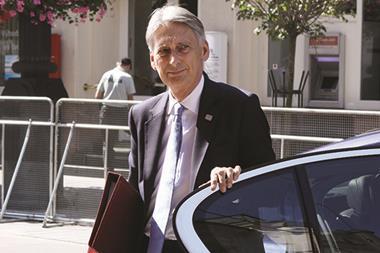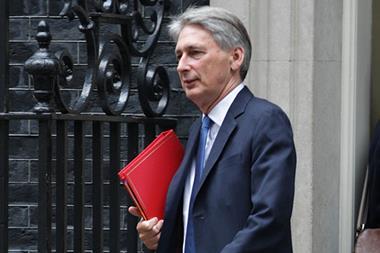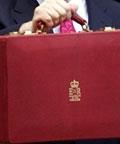Philip Hammond’s first and last spring Budget earlier this month was something of an anticlimax for many in the property industry, who had high hopes of stamp duty cuts and more detail on business rate reforms.

The chancellor provided little excitement, but with Article 50 set to be triggered imminently and potentially causing further turbulence during the coming months, a stable - if boring - budget could be exactly what the country needs.
Over the past 12 months, tax changes including increases in stamp duty on high-value homes and the removal of non-dom treatment, the Brexit vote, a new prime minister and Donald Trump’s inauguration have highlighted the significant impact politics can have on the economy and property markets. Tweaked policies can be game-changers, affecting investment decisions and returns.
In their paper, titled Choice Architecture, Richard H Thaler, Cass R Sunstein and John P Balz highlight the concept of nudging: influencing the choices people make by framing options in a certain way.
From default settings on computers that encourage double-sided printing to save money and reduce the impact on the environment, to putting certain products in certain places to drive sales in a supermarket, so-called ‘choice architects’ are constantly trying to control our behaviour.
Arguably though, government nudging has the widest-ranging impact. The UK’s behavioural insights team (sometimes called the ‘nudge unit’) and the US’s White House Social and Behavioural Sciences Team recognise the value of nudges in delivering prompt and effective results at low cost. Limiting tobacco advertising, heavy taxes and messages on cigarette packets about the dangers of smoking all try to nudge us not to light up; auto-enrolment nudges us to save for retirement.
Property nudges
The UK government’s intentions in taxing the property market are clear: when first-time buyers are struggling to get on to the property ladder, additional stamp duty on second homes cools the market by pushing those with money to invest to look at alternatives to residential property; raising taxes on more expensive properties takes the heat out of the top end of the market and encourages developers to focus on more affordable housing.
But looking at the tax receipts from stamp duty and the effect on the PRS market, which is also an important sector for tackling the housing crisis, it is questionable whether these nudges are working.
As Sunstein says in Nudging: A Very Short Guide: “Some policies, including some nudges, seem promising in the abstract, but turn out to fail in practice… Bad surprises certainly are possible, including unintended adverse consequences, and sensible policymakers must try to anticipate such surprises in advance. Nudges need continuous measurement and improvement.”

Thinking about how nudges might be introduced or changed in the future is an important element in making investment decisions. It is also worth bearing in mind that choice architects do not always have our best interests at heart. It can sometimes be useful to be aware of how and why options might be being presented to us in a way that is not totally objective.
In Michael Lewis’s fantastic book The Undoing Project, he points out that we regularly fall into the trap of cognitive bias, placing undue trust in experts and too much emphasis on things that do not matter.
In lieu of facts, we turn to prophecy. But as we have seen recently, the world is too unpredictable for predictions. We cannot know what will happen, no matter how many industry experts we consult.
Being aware of nudges, separating proven results from conjecture and being cognitive while staying instinctive remains crucial to effective decision-making. In an increasingly complex and noisy world, the ability to do so can make the difference between a good and a bad investment.






























No comments yet